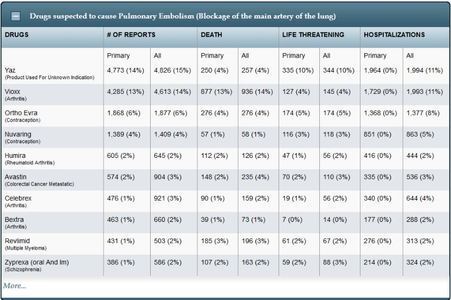Corporate Culture has Run Afoul
By now everyone is aware of Bank of America’s latest in a long stream of fee gouging practices- the $5 debit card fee. This is on top of an endless array transaction fees charged to customers that generate billions in profits annually, and of course, the billions from the bailouts and the foreclosure crisis. Although blatantly evident on Wall Street, the shift in corporate ideology that rewards chicanery pervades every aspect of American life, especially healthcare and most especially women’s and children’s healthcare.
We’re at a place in time where corporations would rather spend billions lobbying favorable regulations and billions more fighting and paying out consumer or patient lawsuits for faulty products than build a quality product or provide a quality service in the first place. How else does one explain the medical marketing of dangerous drugs to otherwise healthy women– think HRT, Yaz and Yasmin, Prozac, Wellbutrin and other anti-depressants to pregnant women (and to rest of the un-depressed population for that matter)? How else does one explain why incredibly dangerous products like Yaz/Yasmin are still on the market despite having more serious adverse events than drugs already off the market because of safety issues (VIOXX) (see comparison of Yaz side effects below, from www.adverseevents.com or click on the graphic below). How else do we explain why it took so many years to remove DES from the market place despite evidence of both teratogenic and carcinogenic effects from the onset or why HRT, was allowed to be marketed as the magic pill that cured all, without any evidence whatsoever? How else do we explain why we not only bought these drugs but demanded them (besides the fact that many are addictive)? How else does one explain that in the 21st century only 30% of practice guidelines for obstetricians and gynecologists are evidence based? Thirty-percent!!!

I guess one really doesn’t need evidence if the treatment choices are limited to bad and worse. Indeed, it’s probably a good thing that more people, patients and doctors alike, don’t question the prescribing practices, the medical efficacy or the very real risk some of these meds pose. Maybe we are marks.
Where did this racket of corporate miscreance come from? I would argue it came from us, or rather because of us. For some reason, we the consumer, the citizen, the patient, the physician, the politician, checked our common sense and personal responsibility at the door of mega-marketing. Somehow we convinced ourselves that we deserved everything, but had to pay for nothing. We abdicated our personal responsibility for our own health, happiness and financial stability to others. And now we are facing the consequences: ill-health, physical and economical, personal and global.
The economic crash exposed the fealty of our financial system and is exposing the very real flaws in our corporate, insurance-based, medical system. The system has taken medical decision-making away from the physician and the patient and placed it squarely in the hands of pharma marketing engines and insurance companies. We’re at a juncture in time, where the sheer economic reality of buying pills to solve all medical problems, is contrasted by the fact that many simply cannot afford their meds anymore and must look to alternative solutions for health.
With all crises comes innovation and change, maybe with this one, we can get back to the “first do no harm” principle of medicine. Maybe we can get back to personal responsibility for health. I think Bill Maher said it best “We’ll stop being sick,when we stop making ourselves sick.”
For a laugh-out loud assessment of modern healthcare by Bill Maher click here.
To look up or report adverse reactions to common medications go to: www.adverseevents.com
Warning: This site does not offer medical advice. If you have questions about your medications or your health, please consult your physician. Do not attempt to discontinue any medication without physician approval and supervision.














